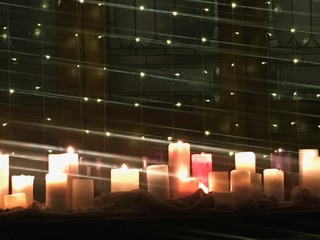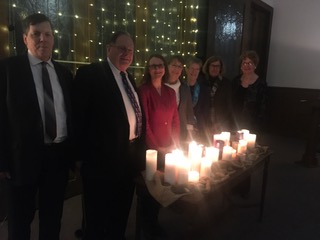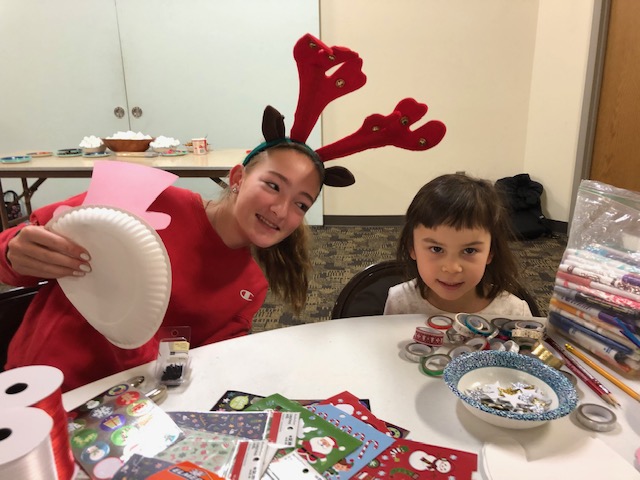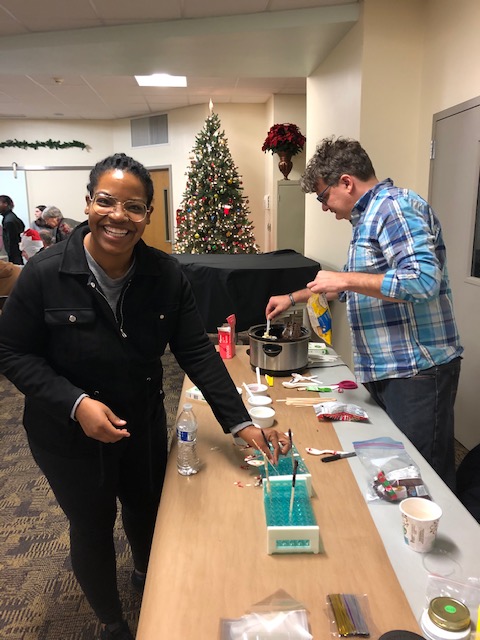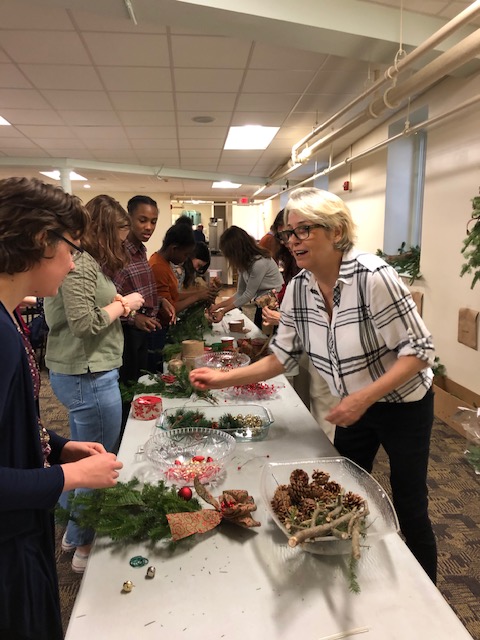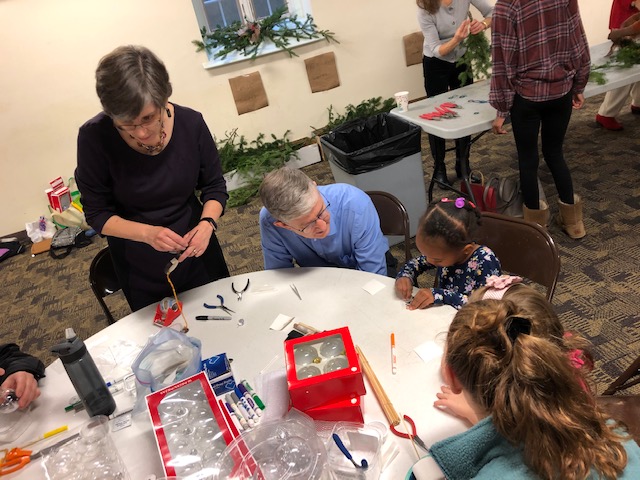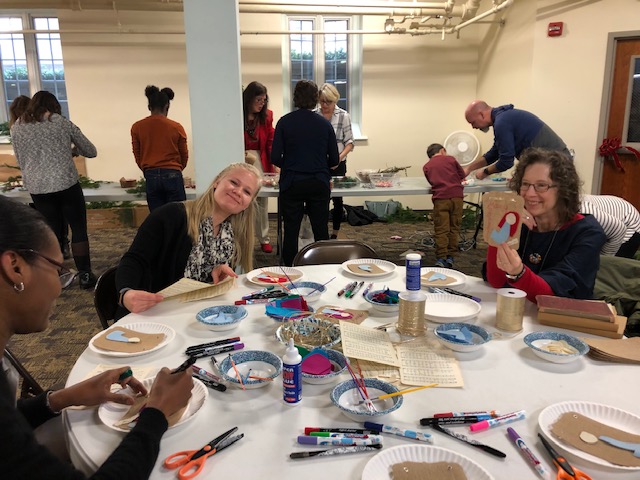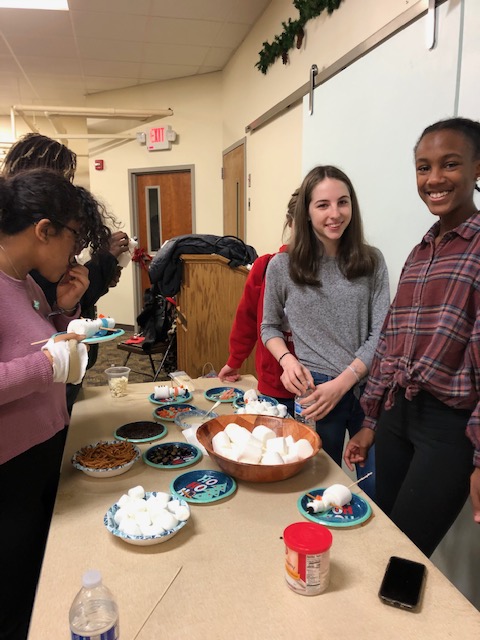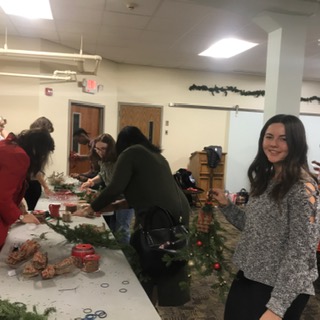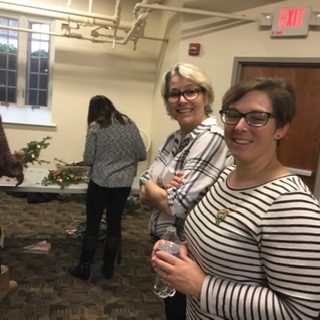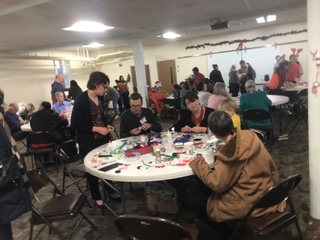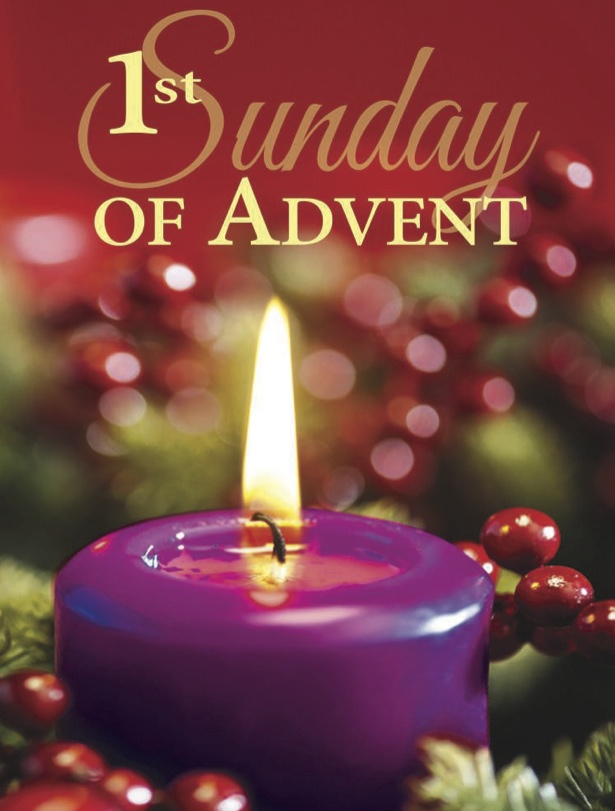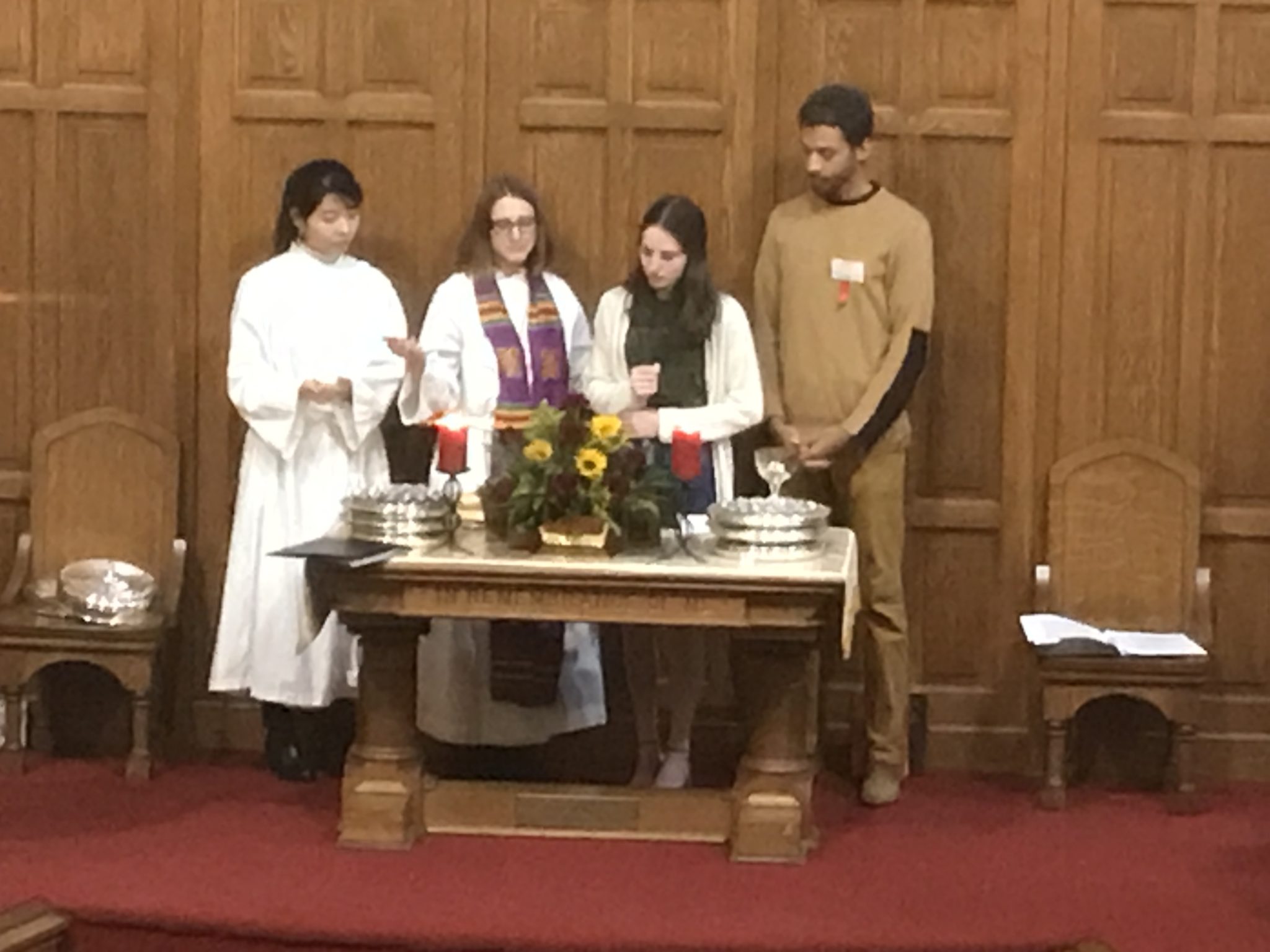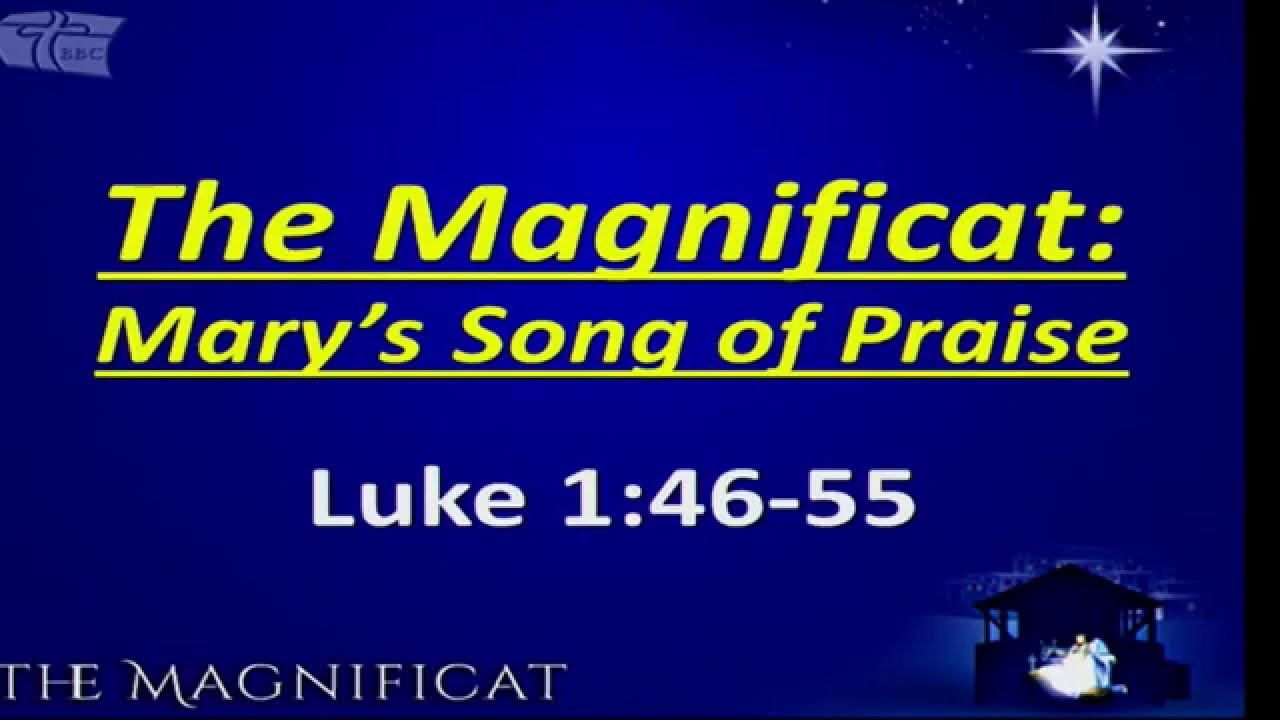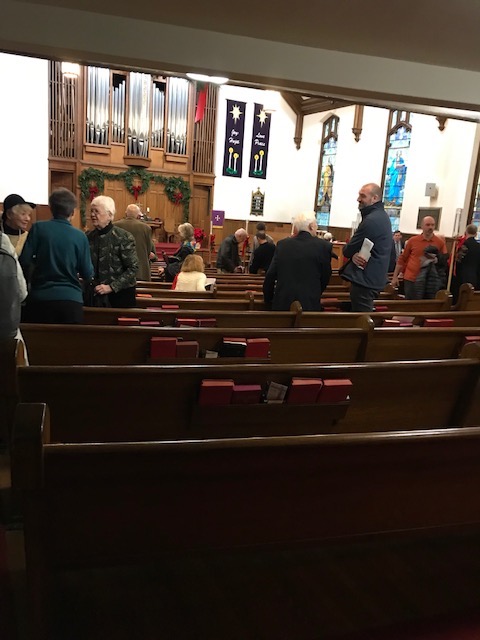On December 9, 2018, the 2nd Sunday of Advent, Rev. Jenny Smith Walz preached a sermon titled “From Despair to Hope” from the series ‘The Bethlehem Trek’. Her text is from Malachi 3:1-4 and Luke 1:67-79.
To hear the sermon live, go to the Princeton United Methodist Church Facebook page
Also, the sermon will be podcast soon on this webpage under the category “worship”.


Zechariah’s Song
Luke 1:67-79
Then his father Zechariah was filled with the Holy Spirit and spoke this prophecy:
Blessed be the Lord God of Israel,
for he has looked favorably on his people and redeemed them.
He has raised up a mighty savior for us
in the house of his servant David,
as he spoke through the mouth of his holy prophets from of old,
that we would be saved from our enemies and from the hand of all who hate us.
Thus he has shown the mercy promised to our ancestors,
and has remembered his holy covenant,
the oath that he swore to our ancestor Abraham,
to grant us that we, being rescued from the hands of our enemies,
might serve him without fear, in holiness and righteousness
before him all our days.
And you, child, will be called the prophet of The Most High;
for you will go before the Lord to prepare his ways,
to give knowledge of salvation to his people
by the forgiveness of their sins.
By the tender mercy of our God,
the dawn from on high will break upon us,
to give light to those who sit in darkness and in the shadow of death,
to guide our feet into the way of peace.’
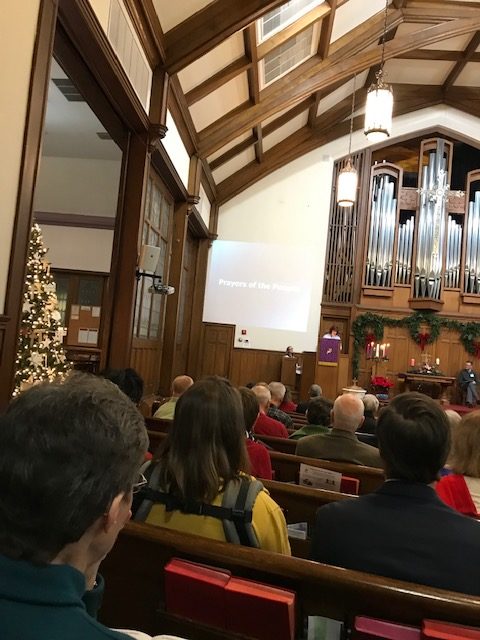
Are you sitting in darkness? Are you sitting in the shadow of death?
When does despair creep into your life? Maybe it’s a constant companion – especially if you suffer from depression. It’s there more often than not, no doubt. But most all of us have these moments where we just aren’t sure that the future will be positive, that there’s any way out of this mess, that good things can and will happen, that there is a future at all.
- After a loss of relationship or job
- death
- in any sort of storm in life
- after listening to the news
- politically things don’t go your way
Zechariah sat in some darkness for a while himself. In Zechariah’s case – there were some reasons to be less hopeful – his own childlessness, and ongoing occupation by Rome, to name two.
Do you remember Zechariah? A priest, whose turn it was to offer incense in the sanctuary. Older, childless – social, spiritual implications if no children.
When Gabriel comes – angel catches him in a moment of despair. Uncertain about the future, that there would be a positive outcome in the future, at least for him and Elizabeth. Angel Gabriel – you will have a son! name him John! You will have joy and gladness! He will be filled with HS! He will turn hearts to God, make people ready for this new thing God is doing.
“How will I know? – my wife and I are getting on in years. Yeah, I’ve heard this sort of things before – these prophecies about a savior. I’m afraid Can I trust? Hope? for Elizabeth and I? for my people? Struck mute.
The next time we hear from him is here. John has been born, and upon his birth, when others want to name him Zechariah after him, he writes, affirming his wife Elizabeth’s pronouncement, that his name was to be John. At that moment, he is able to speak again. And this song is his response. And it’s vastly different than when Gabriel meets him in his darkness. I wonder what happened to him in his silence. There are several things I think he did in that time.
Acted – he and Elizabeth acted as if the angel’s predictions were true. It’s an act of courage and strength to do hope-filled things. Jeremiah – bought a field as the nation was falling to the Babylonians.
Remembered – the ways God has acted and continues to act. God is trustworthy. God keeps God’s promises. This is part of why we worship, we read scripture, we study and pray with one another – to remember. God is the beginning and the end, the alpha, and omega. Christ was born, Christ has died, Christ is risen, Christ will come again. Abraham, Noah, Moses, prophets, God will do a new thing, God is doing a new thing.
Patience found – Patience is the assurance that it is worth it, it is worth the frustration, worth the setbacks. “We are Climbing Jacob’s Ladder” verse: “the struggle is long, but the hope is longer.” Suffragettes – took 70 years to secure the vote for women: song: “we shall not, we shall not be moved, just like a tree that’s planted by the water, we shall not be moved.” Wild patience. Anne Lamott – hope begins in the dark. It depends, not on sight, glimpses, and glimmers, but on waiting, watching, and working.
Community engaged – when we cannot, others will hope on our behalf (like belief, prayer.) We have each other, we are accompanied by these saints, and we carry candles to light at least a little of the way. We are the church.
Envisioned – in what ways are your Christian hopes too limited? If our life together as the people of PUMC was made into a wonderful movie with a happy ending, tell me what that last part of the movie would look like? Our world history? Or your life?
Zechariah was transformed in the silence. He was refined and purified in these months. He became hopeful, joyful!
Anne Lamott – Hope begins in the dark, it is not dependent on sight, glimpses, and glimmers, but on waiting, watching, and working.
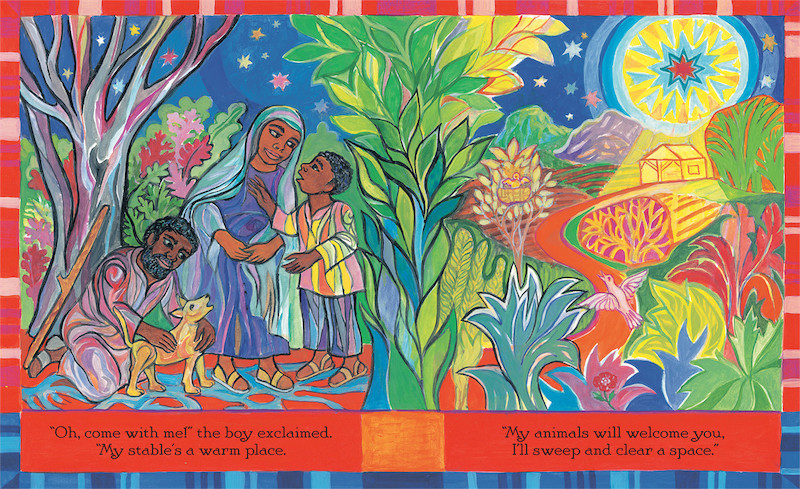




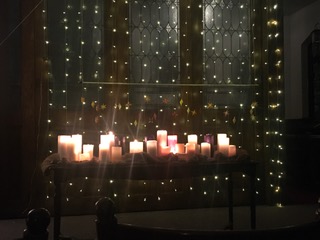 At Princeton UMC, we acknowledged the darkness in life at a Longest Night Service, held this year on Tuesday, December 17. Pastor Jenny Smith Walz and the PrincetonUMC’s Stephen Ministers led a service of reflection, minor and modal music, and prayer – with several times of comforting silence.
At Princeton UMC, we acknowledged the darkness in life at a Longest Night Service, held this year on Tuesday, December 17. Pastor Jenny Smith Walz and the PrincetonUMC’s Stephen Ministers led a service of reflection, minor and modal music, and prayer – with several times of comforting silence.